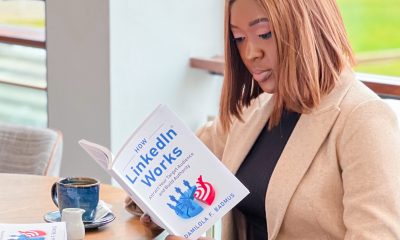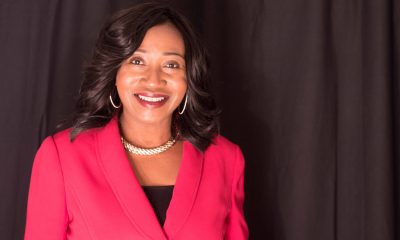Op-Ed
Chinwe Egwim: The Quintessential Economist

Chinwe Egwim; Economist, Author and Advocate (Source: Lilian Madu)
Chinwe Egwim is currently the Senior Economist at a leading financial institution in Africa with over 500 published economic notes primarily geared towards macroeconomics. An award-winning economist, a highly sought after thought leader and an Executive Council member of Women in Management, Business and Public Service (WIMBIZ). She consistently applies rigorous analysis to ensure Africa’s economic landscape is better understood. In this interview with Alaba Ayinuola, Chinwe talks about her career-path, challenges, the causes close to her heart and Africa’s economy. Excerpt.
Alaba: Could you briefly tell me about your background and career-path?
Chinwe: I always find this question interesting because I’d like to think of myself as dynamic and so a succinct description may be difficult to achieve but I will try my best. I am an unapologetic goal-getter, consistently seeking ways to push boundaries and a firm believer of living a purpose-driven life. I also happen to be an Economist with specialization in Macro and Development Economics. I currently work at FBNQuest Merchant Bank (a subsidiary of FBN Holdings) as the Senior Economist.
My role as an economist is refreshing as it gives me an opportunity to critically analyse macroeconomic trends (growth, inflation, reserves, policy rate, oil prices, national account, and trade activities amongst others) for business, policy and investment decision purposes. I currently have well over 500 economic notes under my belt, multiple economic research reports and I have led the analysis of several Purchasing Managers’ Index (PMI) reports among others. Aside from contributing to the advancement of my firm, I offer recommendations to public office holders as well as investment and economic strategy advice to business owners.
Outside my position as the Senior Economist at FBNQuest, I have engaged in high-level projects which align properly with my career trajectory. On the back of my extensive knowledge on market insights and ability to actively engage multilaterals, government and sub-nationals, I was appointed as a National Consultant by the United Nations Economic Commission for Africa; where I led the services trade project partly driven by the United Nations Conference on Trade and Development. Furthermore, my contributions have also supported notable committees’ setup by development agencies like the World Bank.
I kicked-off my career as an economist in the fiscal analysis division of the research department at the Central Bank of Nigeria (Abuja HQRS). However, I have spent the larger part of my career as a professional economist in the private sector.

Alaba: Why Economics and what sparked the interest?
Chinwe: To be honest, before securing my second degree in Economics I was not completely sure on how I would like to apply myself as an economist. The spark came during my first professional stint as an economist. I must also highlight that proper and well-appreciated guidance from my father contributed to this spark. I also gained mentorship very early and this assisted with my increased interest in economics. It also unlocked the different ways I could excel in my career as an economist.
Additionally, through volunteering activities, I discovered my flare for social impact and the interlinkages it has with macro, financial and development economics. Furthermore, my passion for economics was strengthened when I realised, I could use it as a tool to shape conversations that assist decision-makers and stimulate actionable steps for relevant impact.
Alaba: How has your purpose, mission and values shaped your journey thus far?
I personally believe that life is not just about you as a person, fulfillment for me comes from helping the next person or largely contributing to initiatives that positively impact others; this forms a significant portion of my value-system and is at the center of most of my decisions. I am deliberate with using my role as an economist to add value to my organisation which by extension, is contributing to development via the financial services industry. I am also intentional about working beyond my desk. Therefore, you are very likely to see me offering my expertise to specific impact-driven projects within and outside my current industry.
Alaba: What have you sacrificed for your professional journey? Any regrets?
Chinwe: Interesting question. I will say a lot of play or travel and leisure activities and this is not just due to limited time on the back of increased focus on work but mainly due to channeling financial resources towards tools and resources needed to equip and strengthen me as I climb my career ladder. The opportunity cost has been well worth it and so, no regrets. I also believe that life is in seasons. There are times when laser focus on building and climbing is required and other times when fun, play and ample relaxation can be done with no guilt.
Alaba: As a female executive, kindly share some of your biggest challenges, biases and learning curves?
Chinwe: Well, this is no longer a current issue for me. However, earlier in my career, being the only female or in some cases, one of the very few females in an industry meeting or engagement was somewhat challenging as asserting my voice and making relevant contributions in a relatively loud room was a struggle. I quickly nipped this challenge in the bud. The antidote – ample and very extensive preparation before every external meeting or engagement and understanding that you tastefully seize as many opportunities to contribute/ speak as opposed to waiting for a microphone toss which rarely happens.
As for biases, I will share that the narrative of being ambitious is not a feminine trait stuck with me to an extent, but I am glad that I didn’t let it linger and I was able to get past it early in my career. There is also the narrative of successful career women being aggressive as opposed to assertive. It is good to see that these biases are gradually being phased out.
Alaba: How can women leverage on sponsorship and mentorship to achieve the success they want in their business and career, especially in male-dominated industry?
Chinwe: I have personally gained a lot from being a mentee to strong leaders within and outside my industry such as sharpening my technical skills. I have also been given opportunities to add value to high level projects, exposed to opportunities that have had a direct impact on my career progression, built very strong networks and strengthened my CV. But let me just say this, understand that the onus is on you as a mentee to make this relationship effective. You must be able to communicate value to your prospective mentor and have a sense of direction. Also, you must understand that time is a luxury for many and so every mentor-mentee meetup should be utilised properly.
I have a few mentees that were paired with me through mentorship camps or programs. A few examples are WIMBIZ Mentorship program and the Leading Ladies Africa mentorship camp. When you are paired with a mentor, dynamics are a bit different. My advice is to find ways to build organic relationships with your mentor while you both progress during the mentorship scheme. It should be a symbiotic relationship.
It is also worth considering peer mentorship. This allows you learn from your peers. Nobody knows it all and so we should all be willing to adopt this style of mentoring as well. Through peer mentorship, I gain fresh perspectives that enable me to do better at work and I also usually get first-hand knowledge on industry related matters which is good for me, especially for my role as a senior economist in the banking and finance industry.
Alaba: As a senior economist with a leading financial institution in Africa. What is your take on the impact of the global pandemic (COVID-19) in Africa?
Chinwe: So far, Africa has been spared the worst of the coronavirus pandemic in terms of cases and deaths, but its economy has not been so lucky, especially the poorer, smaller countries dependent on a single resource or sector. The COVID-19 crisis has exacerbated existing macroeconomic weaknesses – reflected in high ‘twin deficits, rising public debt and soaring inflation in the majority of sub-Saharan African countries. Private capital flows, including foreign direct investment (FDI) and portfolio investment flows, were at historical lows and remittance inflows to Sub-Saharan Africa are expected to shrink.
Of course, in Africa it is a case of different countries, different impact. So, what do I mean by this?
- For diversified economies – such as Ivory Coast, Senegal and Ghana in West Africa and then Kenya, Uganda and Tanzania in East Africa, activity has slowed significantly but they are still managing to grow according to the IMF.
- Meanwhile, oil exporters such as Algeria, Angola and Nigeria suffered significantly from the plunge in crude oil prices, especially in the earlier months of the crisis. For oil exporting countries in Africa their collective GDP expanded by 1.5% in 2019. However, this is expected to decline by over -4%, due to contractions in Angola and Nigeria.
- Now as for tourism-dependent countries such as Morocco, Tunisia and the Seychelles, they have experienced sharp contractions as downturns in international tourism severely impacted the services sector.
Again, the picture is mixed when it comes to how different countries manage debt and raise fresh funds. On one hand, there is Zambia, which is heavily dependent on mining and became the first country to default on its debt last year, while Ivory Coast later easily raised funds on the market through a Eurobond issuance in November 2020; it was about the equivalent of USD1.19bn and it was five times oversubscribed. Since then, the financial markets have found their appetite for risk again, and especially for African debt, but investors remain cautious. Another important source of funds for African countries is remittances from their foreign workers and inevitably this has also suffered due to the pandemic.
Now let me shed some light on banks – African central banks were resilient in 2020 compared with central banks across countries in other continents. Central banks, in a coordinated effort with fiscal authorities have used expansionary monetary policy in the form of increased money supply through traditional, open-market operations as well as quantitative easing. Some central banks have used their monetary flexibility to promptly lower interest rates by c.300 basis points (bps), as we saw at the Central Bank of Egypt, while others have adopted a more gradual approach, like the South African Reserve Bank’s trimming of 275 bps between March to May of last year. All central banks have been attempting to calibrate their actions with government fiscal support measures while preserving their inflation targets. Another tool that central banks are deploying is macro-financial assistance, which comprises medium/long-term loans or grants to businesses or households given the pre-existing difficulties for many with accessing loans from banks.
Alaba: Do you think Africa can fully recover from the economic consequence of the pandemic? If yes, How?
Chinwe: Africa is expected to rebound in 2021 with growth varying across countries. Many African countries have seized the opportunity within the crisis to move faster on necessary reforms and investments that will be crucial for long-term development. However, concerns of a second wave are fueling further uncertainty. In such context, the road to recovery will be long and will require policies and investments that focus on connecting people to job opportunities, which can help end extreme poverty, particularly post COVID-19. In a time of lockdowns and social distancing, investing in the digital economy and infrastructure will also be crucial to mitigate the impact of the COVID-19 pandemic and foster a sustained recovery.

Alaba: What causes are closest to your heart?
Chinwe: Economic and Financial literacy, inclusion, gender equality and youth Empowerment.
Alaba: How do you unplug and manage your work-life balance?
Chinwe: Binge on feel-good tv series. As often as possible, I try to get uninterrupted 8 hours of sleep. I try to take walks as often as possible and vacations are also a must -have.
Alaba: If you were a brand, you would be like? Why?
Chinwe: I consider myself as a brand. However, I will take a stab at answering this question. So, Nike is my answer. Nike embodies overcoming of one’s limitations, the pursuit of a mission or calling. This brand is about realizing one’s full potential, taking down barriers, being brave, bold, hardworking and resiliently moving forward, hence the “Just Do It”. It evokes fundamental values needed to thrive. Therefore, it strongly resonates with me and my personal brand.
Alaba: Your top picks to read, watch and listen?
Chinwe: To read
- Understanding Economic “Jargon” by Chinwe Egwim – I authored this book to help its readers stay economically alert and serve as a guide with regards to navigating the macroeconomic landscape. Especially, for those that are keen on staying ahead.
- The “Girl” of Entrepreneurs by Ibukun Awosika – This book is incredibly amazing. It has been my travel companion for years. The book documents the experiences of African businesswomen in terms of their background, their start-up stage, their growth pattern, their challenges, the impact of choices of spouse on their business as well as their work-life balance.
- A-Z of Personal Finance by Nimi Akinkugbe – An awesome book that helps you stay woke with your personal finance. The book provides you with important practical information and useful tips on matters concerning you and your money. Every emerging leader should have this book in their book collection.
- Strategize to Win: The New Way to Start Out, Step Up, Or Start authored by Carla Harris – This book has served as a blueprint for me with regards to navigating my career path. It offers new ways to conceptualize career strategies and gives proven tools for successful change.
To watch
- The Last Dance. A documentary that chronicles the rise of Michael Jordan. There are so many career and life lessons to learn from this documentary. A few of them are: you have to start somewhere; to win, you must hold yourself accountable; a great team can make all the difference; play to your strengths; sometimes, you have to take a break and recharge and you need to find your motivation.
To listen
- Life in BLOOM with Tosin Durotoye Podcast
- The WIMBIZ Choose to Challenge Podcast
- The Smart Money Tribe by Arese Ugwu Podcast
- The Women Who Transcend Podcast
- Porsha4Real with Porsha Williams Podcast
B I O G R A P H Y

Chinwe Egwim is currently the Senior Economist at a leading financial institution in Africa with over 500 published economic notes primarily geared towards macroeconomics. She consistently applies rigorous analysis to ensure Africa’s economic landscape is better understood.
Chinwe is an advocate for women empowerment and a firm believer of equipping disadvantaged women with tools to enable them to thrive. In 2020, Chinwe was appointed as an Executive Council Member of Women in Management, Business and Public Service (WIMBIZ). She has received multiple recognition and awards for her work as an Economist. Some of which include:the Most Influential People of African Descent (MIPAD), 100 most inspiring Nigerian women by Leading Ladies Africa, the Corporate Nigeria PowerList under 40 and also a leading woman in banking by the Association of Professional Women Bankers. Chinwe was nominated by Future Awards Africa and won the HER Network Career Woman of the Year in 2018.
Chinwe authored a book titled, Understanding Economic “Jargon”. The book uses a simple approach to breakdown how economic indicators and the investment climate react to economic shocks and upswings. It has ranked as a bestseller on Amazon.
Op-Ed
Rethinking Public-Private Partnerships for Africa’s Trade Future
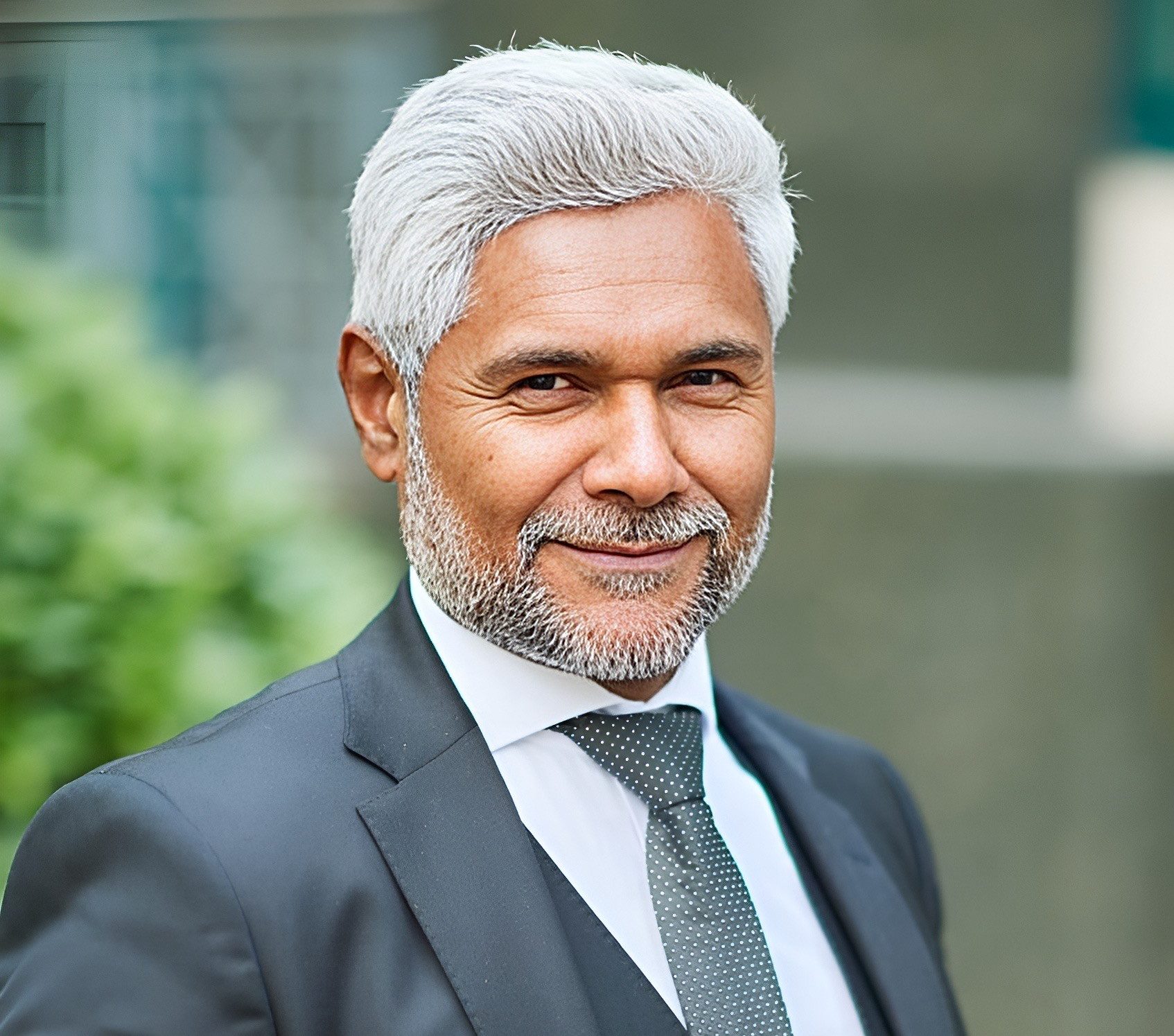
By Ludovic Thanay, Senior Vice President Sales, Webb Fontaine
Africa stands at a turning point. Home to nearly a fifth of the world’s population but responsible for less than 3% of global trade, the continent continues to punch below its weight. The reasons are well documented: weak infrastructure, fragmented policies, and slow adoption of digital systems. The real challenge is not only to bridge the divide but to design a model of trade that reflect’s Africa’s own realities and ambitions. Public-private partnerships (PPPs), when built on trust and shared responsibility, can play a decisive role in that transformation.
More than Procurement
All too often, PPPs in Customs and trade are seen as procurement arrangements, with governments buying systems and private firms delivering them. That narrow view misses the point. Strong partnerships are those that bring stakeholders together to design solutions everyone can benefit from. Governments bring legitimacy and reform agendas rooted in World Customs Organization (WCO) and World Trade Organization (WTO) commitments. Private partners bring technology, agility, and the capacity to deliver at scale. When these elements are combined, partnerships move from being procurement exercises to becoming drivers of reform.
The frameworks already exist. The WCO Data Model, the WCO SAFE Framework of Standards to Secure and Facilitate Global Trade, and the Time Release Study all provide the international backbone for reform. But frameworks do not implement themselves. They need digital tools, from risk management systems to Single Windows, Port Community Systems, and e-payment platforms. This is where PPPs prove their value: by turning policy ambitions into working systems that deliver results.
Trust, Governance, and Transparency
Strong governance underpins every sustainable reform. Without clear roles, independent oversight, and visible results, even the most advanced technology can fail to take root.
Digital systems can reinforce this credibility. Linking e-payment solutions directly to Customs, for example, not only accelerates transactions but also gives finance ministries a real-time picture of revenue. Risk engines that leave an auditable trail make clearance decisions faster while also making them open to review. When operators see a process that is efficient and predictable, trust in the wider system follows.
Data: Shared but Protected
Trade digitalisation depends on data. Declarations, shipping manifests, payments, and risk profiles all need to move quickly between agencies, operators, and even across borders. But speed raises questions of ownership and protection. Who controls this data? How is it used? How is it secured?
PPPs must give answers. Shared platforms cannot succeed if businesses and citizens doubt the safety of their information. Data must flow, but it must also be protected. For Africa, where regional integration under the African Continental Free Trade Area (AfCFTA) depends on interoperability, this means developing consistent data governance rules that balance openness with privacy. Private partners have a critical role here, providing not only the systems but also the security frameworks that keep information safe while still enabling smarter, faster trade.
Capacity and Ownership
Even the best technology fails if the people who use it are not part of the journey. Too many projects collapse because systems were handed over without building local skills or ownership. Sustainable partnerships integrate training and institution-building from the start. Success should be judged by more than faster clearance; it should be about whether administrations can manage and expand these systems themselves over time.
AfCFTA: From Vision to Practice
The AfCFTA offers the prospect of the world’s largest single market. But no agreement, however ambitious, will succeed if each country implements its own isolated digital solutions. A corridor cannot be “smart” if every border is a digital island.
This is where PPPs can help governments look beyond national boundaries and build systems that work together. Integration depends on the basics: harmonised standards, interoperable systems, and shared infrastructure.
Towards a Distinct African Model
By 2050, one in four people on earth will be African. The real question is whether Africa will still be adapting to external models of trade, or whether it will be shaping its own. PPPs provide a chance to do the latter: to design solutions that grow out of African realities while staying connected to global norms.
The lesson from years of reform is clear. Technology matters, but what makes the difference is governance, trust, capacity, and shared responsibility. The real measure of success will be whether the continent can help shape the rules of tomorrow rather than adapt to those of yesterday.
Op-Ed
Can connectivity ignite South Africa’s remote economy?
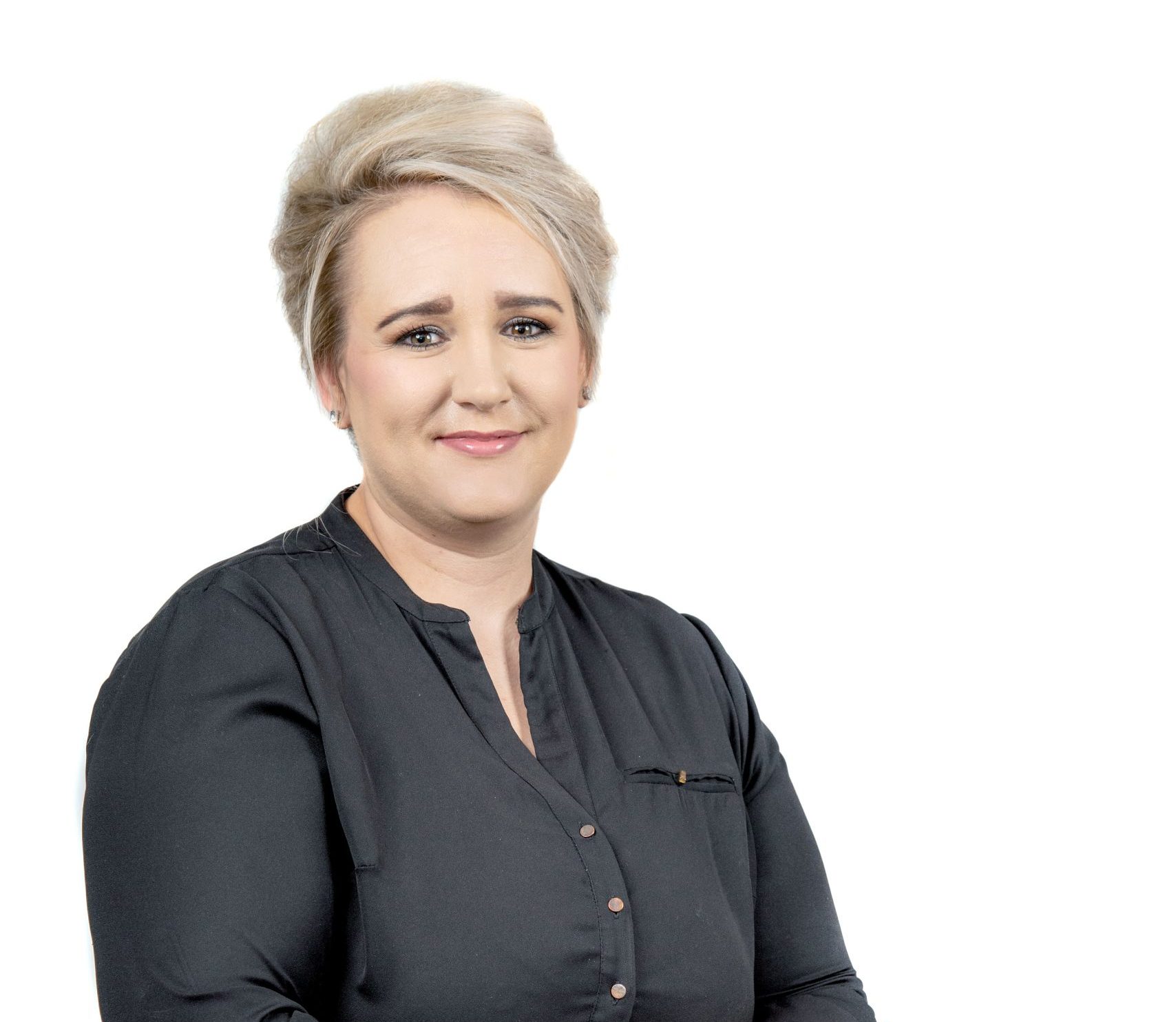
By Kathleen Morris, Product Manager for Satellite at Vox believes that satellite broadband has become the critical layer powering productivity and safety for mega farms, mining and hospitality industries in South Africa’s most remote regions.
Mining, agriculture, renewable energy and hospitality are some of South Africa’s most critical industries. These sectors make up some of the largest contributors to South Africa’s GDP, with mining contributing up to 6% and tourism 8.9%. They rely on always-on connectivity to deliver services, manage customers, prioritise safety and benefit from next-generation technologies, yet many are based in rural areas that lack the density to justify the roll-out of fibre. Instead, they are reliant on wireless links that are vulnerable to theft, power failures and unstable backhaul.
Which is a problem.
Reliable connectivity, says the Minerals Council South Africa, improves efficiencies and ensures safety for employees in hazardous environments. In agriculture, it allows for farms to leverage IoT and sensor-based technologies to optimise irrigation and water use as well as implement scalable agricultural processes. And in hospitality, always-on connectivity enhances travel experiences and broadens local business opportunities.
Fortunately, there’s an alternative to waiting for fibre or relying on wireless – Low Earth Orbit (LEO) satellite services are a viable option, allowing for the delivery of fibre-like speeds in places where fibre doesn’t reach. And already it has proven invaluable to companies that have invested in the technology.
Mining operations in the Northern Cape and cross-border operations near Namibia have implemented LEO as a satellite redundancy to safeguard critical communications. Their goal? To ensure that there was little to no downtime in communications because a single connectivity failure could halt automation systems and compromise safety protocols. LEO provides stable redundancy that fibre and microwave links can’t guarantee and works in tandem with alternative connectivity solutions to ensure always-on operations.
In the agricultural sector, IoT solutions are going beyond irrigation and deeper into operational and productivity. The technology is now being used to monitor soil quality, track livestock and use the data provided by multiple sensors and systems to optimise yields. However, without reliable upstream links the data needed for these systems isn’t accessible, which ultimately renders them redundant. LEO has the ability to deliver the connectivity needed to ensure the smart farm model – already proven in the Western Cape with viticulture and Free State with grain production.
In tourism, LEO offers low-latency broadband to boutique lodges in areas like the Kruger or Drakensberg, giving them the ability to deliver high-end services to high-end customers. Think game drive images shared in real time, remote working facilities and even personalised, boutique guest experiences all supported by consistent and reliable connectivity.
Finally, renewable energy is another sector reliant on reliable connectivity, especially as installations sit in rural, hard to reach areas. The country is still adding more solar and wind capacity with additional projects expected over the next 5-10 years, with most projects concentrated in areas like the Eastern and Western Cape. Turbines and solar plants are managed via centralised dashboards which are often located offshore and LEO satellite links can enable continuous monitoring and control, which not only improves management but also offers improved protection over expensive assets.
All these sectors combined can cost the country billions in lost revenue if connectivity and infrastructure fail. It’s the economics of reliability – millions lost to loadshedding, connectivity outages and water failures. LEO can’t fix power, but it can operate reliably despite power outages and in spite of companies being in remote, poorly serviced locations. It moves the conversation away from risk as it can be deployed as insurance.
However, perhaps the most transformative impact LEO has on the country is how it can ignite small business and community-led economies. It removes the need for companies to cluster in metros and entrepreneurs can establish operations in small towns or semi-rural areas without sacrificing global reach. The technology is becoming part of the core connectivity mix that keeps industries competitive and meets the expectations of investors and visitors.
While South Africa’s future hangs from multiple fraying threads, there’s no reason why connectivity has to be one of them.
Op-Ed
Situational awareness has become a frontline imperative for first responders
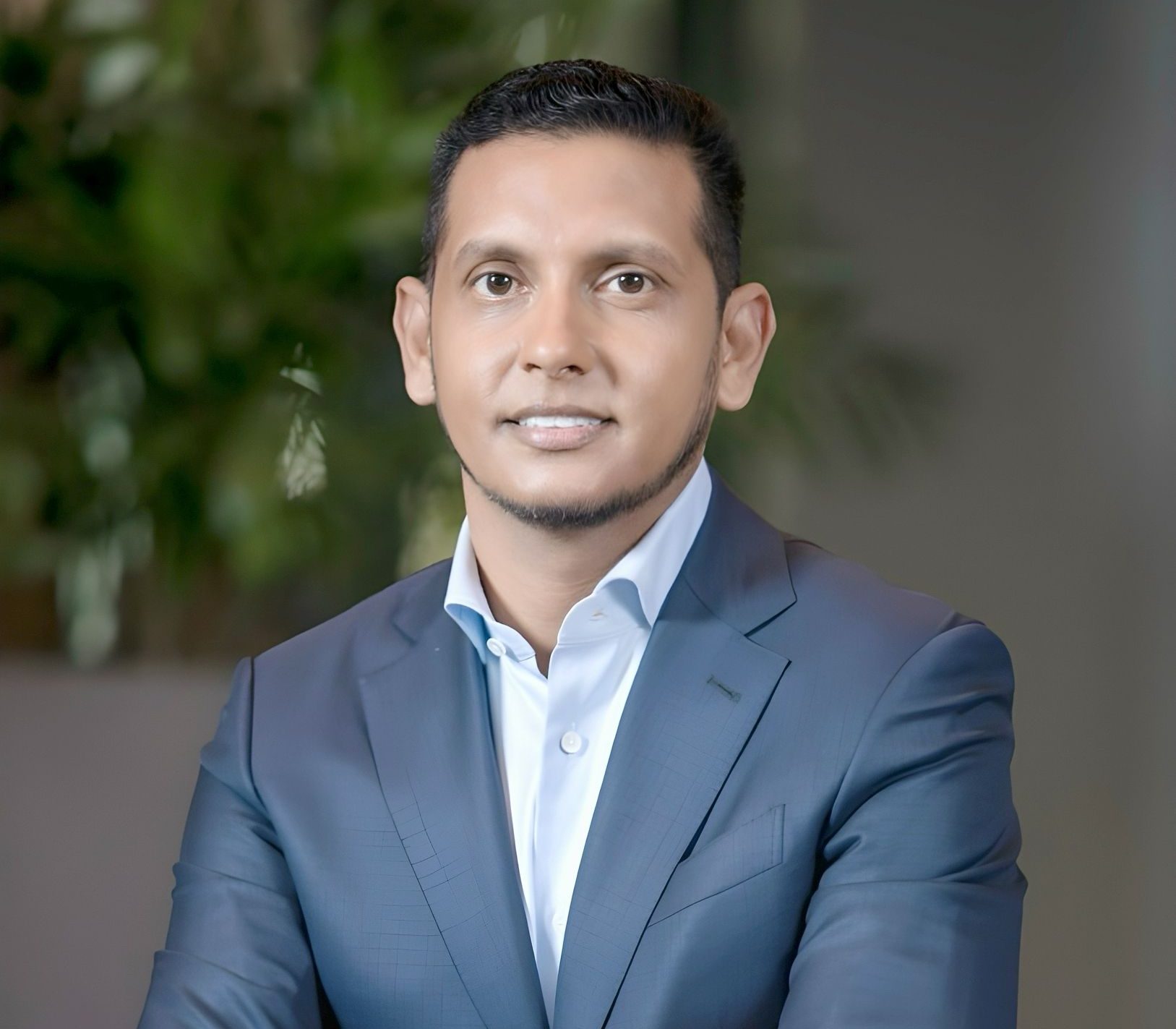
By Reshaad Sha, Executive Chairman, Sentiv
The ability to see, act and understand events in real time is changing the face of emergency response and the speed at which lives are saved. For decades, this visibility was built on two-way radios, CCTV cameras and after-the-fact reporting. In 2025, these systems are no longer enough, especially in South Africa. Urban density, extreme weather, infrastructure instability and complex threat environments demand more intelligence delivered instantly to emergency responders.
A systematic review published in Disaster Medicine and Public Health Preparedness recently confirmed how essential situational awareness has become to ensure effective and efficient disaster response. Another study showed how combining body-worn cameras, drones and AI could support real-time situational awareness and improve evidence collection, officer and public safety, and operational efficiency. Technology is changing the shape of saving human lives, and already there are multiple use cases worldwide that underscore its value.
Body worn cameras have become live-streaming intelligence nodes, drones now arrive on the scene before officers, and IoT sensors add layers of environmental insight. Combined with the rapidly changing capabilities of AI, these technologies are moving situational awareness from fragmented inputs to a unified, predictive view.
Proven Impact that is globally validated.
The impact of these tools is also measurable. The Chula Vista Police Department in California, for example, has deployed drones as first responders on more than 20,000 missions and have cut their average response times by more than two minutes. The Lancashire Constabulary in the UK equipped 2,200 officers with integrated body-worn cameras to streamline reporting and boost transparency, and in 2024, Police Scotland committed £13.3 million to a nationwide rollout of 10,500 devices following 81% public support. In Seattle, Brinc, a drone manufacturer, has expanded its Responder drone platform to more than 700 public safety agencies across the United States. And in China, UAV-based communication nodes have kept operations running in disaster zones where terrestrial infrastructure has failed.
Why this matters today
Globally, the demand for richer situational awareness has reached a tipping point. Citizens expect every interaction with emergency services to be transparent and backed by verifiable evidence, a standard reinforced by research showing body-worn video reduces public complaints and escalations dramatically. At the same time, the pressures of rising urban density, climate-related disasters, and increasingly complex security threats are stretching traditional tools beyond their limits.
In South Africa, the safety environment is equally on the cusp of change. Transforming first responder and citizen safety is urgent. For every police officer, there are six private security guards, most operate with fragmented systems, often relying on WhatsApp groups to coordinate responses, and ambulance operators frequently dispatch vehicles without visibility into what equipment and medication they have available. Combined, these factors undermine survival rates.
At the same time, city governments like Cape Town have shown the life-saving impact of resilient communication networks. They kept first responders connected during the recent wildfires and show the art of the possible when mission-critical communication and situational intelligence are treated as public infrastructure.
And how the accessibility and readiness of today’s technology is making it easier for cities and governments to change. With LTE and 5G now embedded across most urban centres, the networks exist to carry real-time video, telemetry, and AI-driven analysis directly into command centres. For the first time, agencies can move from fragmented updates to continuous, multi-layered intelligence, allowing them to anticipate hazards, respond faster, and build trust through accountability.
And the proof is in the results – when intelligence is delivered faster, outcomes improve, public trust and officer safety increase and communities experience tangible value. The future lies in convergence. Body-worn video, drone reconnaissance, IoT sensors, and AI analytics, when connected through a single platform, create a living operational ecosystem. Instead of officers drowning in raw data, decision-makers receive actionable intelligence: suspect locations, hazard alerts, biometric stress readings, or automated evidence logs.
A measurable strategic pay-off
Importantly, the pay-off is very clear. Technology brings transparency alongside reduced litigation risks through verifiable chains of evidence; faster response times; improved operational efficiencies with automated tagging and streamlined reporting; and community trust driven by accountability. Crucially, these investments also lay the groundwork for smart city capabilities with predictive policing, cross-agency data sharing and AI-driven dispatch.
This is the direction Sentiv has taken, with modular platforms that integrate easily into existing dispatch and command systems. The Sentiv model is already in use, supported by flexible commercial structures such as Body-Worn Cameras-as-a-Service or Drone-Response-as-a-Service solutions. These modular solutions allow decision-makers to opt into next-generation situational awareness using solutions and approaches already proven, both locally and globally.
For leaders in South Africa and across Africa, the opportunity is to leapfrog legacy models and build integrated, cloud-enabled situational awareness from the ground up. By doing so, they can save lives, reduce risk, and create safer, more resilient communities, and avoid the costs and complexity that come with fragmented systems, slower responses and reduced public trust.
-

 Oil and Gas2 days ago
Oil and Gas2 days agoTotalEnergies, Chevron Push for Faster Permits, Better Seismic Data in Africa
-
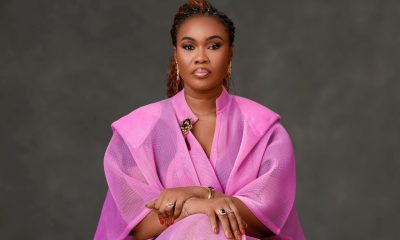
 Afripreneur13 hours ago
Afripreneur13 hours agoRevolutionizing Cross-Border Payments in Africa: An Exclusive Interview with Onyinye Olisah
-

 Energy2 days ago
Energy2 days agoUnited States (U.S.) Political Will, African Reforms Signal New Era for Energy Investment




